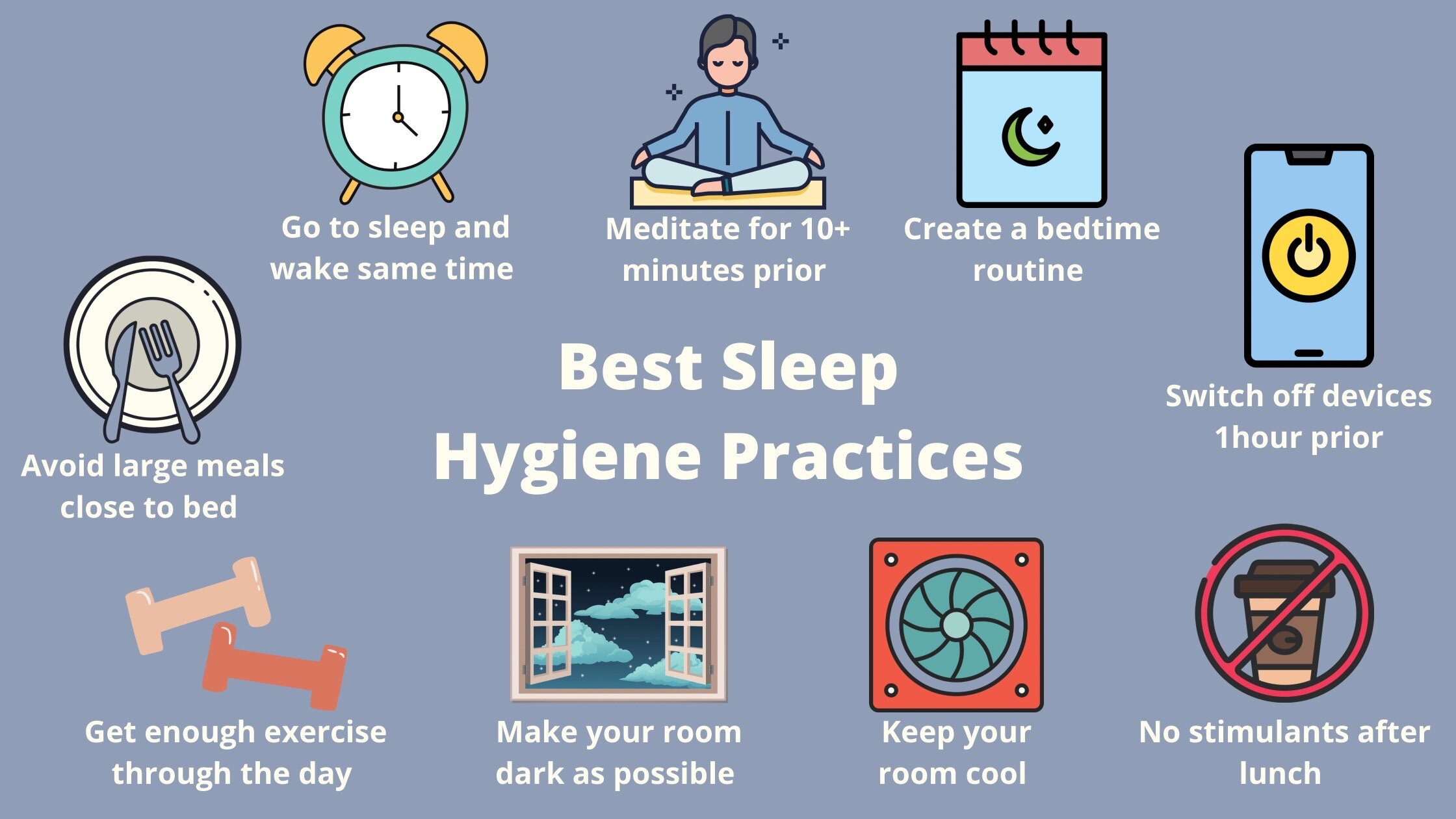An overview of Sleep Hygiene
Sleep hygiene

Sleep is an essential component of overall health and well-being. It helps the body repair and rejuvenate, and is critical for cognitive function, emotional regulation, and physical health. However, many people struggle with getting adequate sleep, and this can have a negative impact on their health and quality of life. In this blog post, we will discuss the importance of sleep hygiene, common sleep issues, and some practical tips for improving your sleep habits.
What is sleep hygiene?
Sleep hygiene refers to the habits and practices that promote good sleep. These can include things like creating a comfortable sleep environment, establishing a regular sleep routine, and avoiding substances that can disrupt sleep, such as caffeine and alcohol.
Common sleep issues:
1. Insomnia: Insomnia is a common sleep disorder characterized by difficulty falling or staying asleep. It can be caused by a variety of factors, including stress, anxiety, and certain medications.
2. Sleep apnea: Sleep apnea is a condition in which a person's breathing is interrupted during sleep. This can lead to excessive daytime sleepiness and other health issues.
3. Restless leg syndrome: Restless leg syndrome is a condition characterized by uncomfortable sensations in the legs that can make it difficult to fall asleep.
4. Shift work sleep disorder: Shift work sleep disorder is a condition that occurs when a person's work schedule is out of sync with their natural sleep-wake cycle. This can lead to difficulty sleeping and other health issues.
Tips for improving sleep hygiene:
1. Establish a regular sleep routine: Try to go to bed and wake up at the same time each day, even on weekends.
2. Create a comfortable sleep environment: Make sure your bedroom is cool, dark, and quiet. Use comfortable bedding and a supportive mattress.
3. Avoid stimulants: Avoid caffeine, nicotine, and alcohol before bedtime, as these can disrupt sleep.
4. Practice relaxation techniques: Relaxation techniques such as deep breathing, meditation, and progressive muscle relaxation can help reduce stress and promote better sleep.
5. Limit screen time before bed: Exposure to the blue light emitted by screens can disrupt sleep. Try to avoid screens for at least an hour before bedtime.
In conclusion, sleep hygiene is an important aspect of maintaining good health and well-being. By establishing a regular sleep routine, creating a comfortable sleep environment, avoiding stimulants, practicing relaxation techniques, and limiting screen time before bed, you can improve your sleep habits and promote better sleep. If you are experiencing persistent sleep issues, speak with a healthcare provider to determine if there may be an underlying medical condition that needs to be addressed.